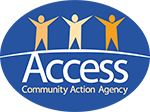Is your organization seeking to improve:
Awareness, Engagement, Resiliency, Retention, Healing, Growth?
Access Trauma-Informed Care Trainings:
- 90-minute Informational Trainings (virtual and/or in-person)
- Half and Full Day Facilitations
- Ongoing Coaching Engagements
The training plunged our mentors into the realities that many of our learning partners have faced in their lives. It inspired us to stay positive, curious, and engaged. It also challenged us to be our best and most excellent selves as we support and encourage the learning partners who we mentor.
The TiC training concepts of Customer Service and Team-building accentuated and put into practice our discussion of purpose regarding our mission and ongoing strategy. The material spoke to everyone present both personally and in their work to foster empathy for our members and our community.
Content provided us with the opportunity to think beyond our personal feelings and to focus on how to better meet the needs of our members.
I truly enjoyed every second of it! Also, this morning I practiced affirmations on my way to work & overall it was a beautiful experience getting to meet wonderful new people. Thank you for providing that experience for me.
The day was fun and engaging and I appreciated the fact that we were forced to interact as a group so people didn’t have the opportunity to be on their phones a lot.
Interactive and engaging instead of sitting in our chairs for the better part of the day listening to an instructor talk.
Content provided us with the opportunity to think beyond our personal feelings and to focus on how to better meet the needs of our members.
The results were beyond our expectations and gave us all an opportunity to grow.
The Trauma Informed Care training gave our staff insight into the difficulties our clients experience every day. It was extraordinarily eye-opening and helpful. We will continue to offer this training on a regular basis for our staff.
Safety
Throughout the organization, patients and staff feel physically and psychologically safe.

Trustworthiness
Decisions are made with transparency, and with the goal of building and maintaining trust

Peer Support
Individuals with shared experiences are integrated into the organization and viewed as integral to service delivery

Collaboration
Power differences – between staff and clients and among organizational staff – are leveled to support shared decision-making

Empowerment
Patient and staff strengths are recognized, built on, and validated – this includes a belief in resilience and the ability to heal from trauma

Identity Issues
Biases and stereotypes (e.g. based on race, ethnicity, sexual orientation, age, geography) and historical trauma are recognized and addressed

